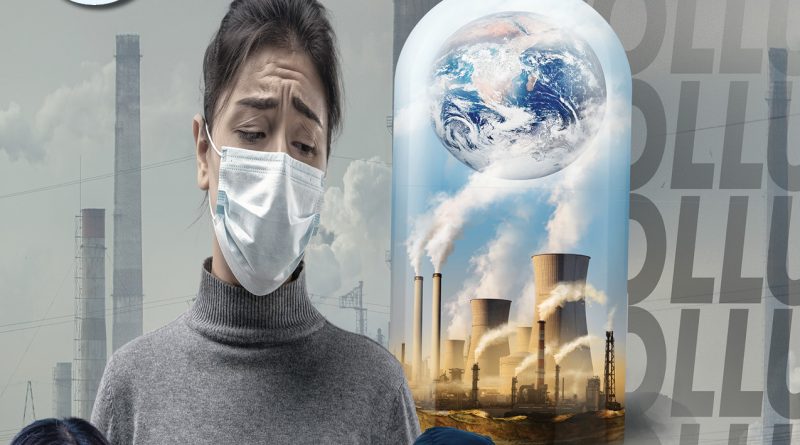Air, Organ, and Safety At Stake
Dear Readers,
As we advance through a dynamic era in medical innovation, Indian doctors and healthcare professionals are making notable strides globally. These contributions are shaping healthcare systems far beyond our borders, a testament to India’s growing impact in the medical world. At Double Helical, a comprehensive national health magazine, we are committed to spotlighting these achievements, which range from groundbreaking research to advancements in medical technologies and services. Through these stories, we highlight the innovations, individuals, and products that are transforming healthcare services in the country.
In this issue, we turn a focused lens on a pressing and deeply concerning crisis—violence against doctors. This special feature emerges from a Double Helical webinar that convened some of the country’s foremost healthcare leaders to discuss the increasing violence directed at medical professionals. Recent tragedies, such as the incident at RG Kar Medical College in Kolkata, bring urgency to this issue, emphasising the need for collective action. At the forefront of this conversation was Dr R V Asokan, National President of the Indian Medical Association (IMA), who offered insight into the complexities surrounding violence in medical settings. The session, titled “Violence Against Doctors: A Call for Action,” illuminated critical needs: legal protections, institutional reforms, and immediate actions to make healthcare environments safer for the dedicated individuals who serve. The speakers called for the enactment of unified laws across states to address this crisis consistently and effectively, stressing the importance of bolstered security measures to create secure workspaces in healthcare facilities nationwide.
Delhi’s air quality crisis also demands urgent attention, as rising pollution continues to engulf the capital and its neighbouring NCR cities, placing millions at risk. Our cover story, “Breathless in the Capital,” addresses the escalating respiratory health threats posed by persistent pollution. Exposure to dangerously high. AQI levels affects everyone, from those with chronic conditions to generally healthy individuals. The constriction of airways, or bronchoconstriction, caused by pollutants results in widespread symptoms—coughing, wheezing, and shortness of breath—that disrupt daily life and compromise long-term health.
AQI levels in Delhi recently exceeded 400 in several areas, indicating severe pollution that affects even those without prior health issues. Such conditions demand proactive government intervention, as well as NGO and community efforts focused on real solutions rather than attributing blame. Lasting change will come from initiatives that prioritise environmental health and safeguard public wellbeing through actionable strategies.
Our issue also explores several critical but under-recognised public health challenges. While global headlines often focus on pandemics like COVID-19 and Mpox, India continues to face numerous endemic diseases that claim lives without focused attention. This issue looks beyond headline diseases to shed light on conditions that affect vast populations but often go unnoticed in media and policy circles.
The post-COVID era has also ushered in a new research frontier: immunomodulation and how COVID-19 and its vaccines alter immune responses. With the virus showing an ability to disrupt immune function, especially in severe cases, scientists are working to understand these immunological shifts. This research is crucial for developing robust public health strategies that address the longer-term impacts of COVID-19 on individual and public health. As the pandemic fades, such studies are necessary to guide future policy and treatment developments.
Kidney disease is another health crisis that deserves serious attention. Across India, millions of patients face complications exacerbated by a lack of available organs, an underdeveloped donor system, and low public awareness about organ donation. Transplant medicine has made incredible progress, offering hope for those affected by renal diseases. However, challenges like the illegal kidney trade and public reluctance toward donation persist. Recent research, including a significant NIH study, has shown that kidney transplants between HIV-positive individuals can be performed safely, expanding the donor pool to meet the needs of more patients in India. Yet, to truly address the organ shortage, we need changes in educational, social, and ethical mores.
Tuberculosis (TB) remains a significant public health issue, even as other diseases gain international attention. India’s National Tuberculosis Elimination Programme is making steady progress toward combating TB, yet the challenges are formidable. Tuberculosis elimination requires ongoing resources and commitment, and we aim to bring attention to this disease as part of our larger health mandate.
Packed with these insightful and thought-provoking stories, this issue reflects our continued commitment to illuminating the challenges and triumphs within India’s healthcare sector. We hope you find it both informative and engaging.
Happy reading, and best wishes for a happy and prosperous Deepawali!
Happy reading!
Thanks and regards
Amresh K Tiwary,
Editor-in-Chief

